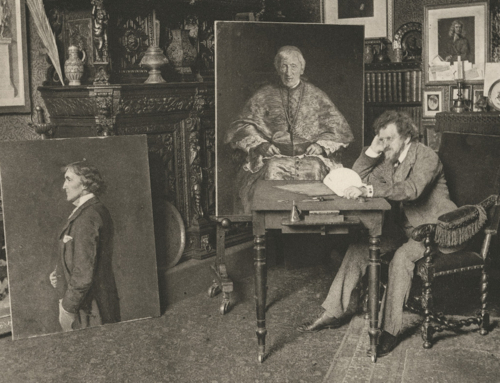Many have heard Teresa of Avila’s prayer “Let nothing disturb you… God alone suffices,” which she scribbled on a small bookmark of hers during prayer. I recently discovered, however, that she wrote many other poems. I was stranded on a long car trip with nothing but my breviary—the small book which priests and religious use to pray the Liturgy of the Hours—and in an appendix of religious poetry I found one of her works, “If, Lord, Thy Love for Me is Strong.” It’s extremely simple, nothing florid and colorful like lines of Shakespeare, but she’s incisive in her sort of holy frustration with God. She basically asks him, “What holds you back from me?” It’s like saying to God, “Hurry up already! Flood me with your love!” He responds with simple phrases, “What do you desire? What do you fear?” which provoke her to cry out even more.
Whenever poetry is translated from an original language, often changed to fit an English rhyme, it loses many senses of the many original words. The Italians have a saying, “Traduttore, Traditore,” which means, “The translator is a traitor,” originating with their displeasure at other European neighbors’ efforts to translate Dante. I don’t mean to throw Arthur Symons, Teresa’s translator in this instance, under the bus. Unlike myself, he’s an actual poet with his own page on Poetry Foundation. I did want to get at her actual words, however, so I searched for her poem in the original Spanish, “Coloquio Amoroso.” Below I’ve attempted a more literal English version, lacking in meter but closer to her actual words.
“Loving Conversation”
If the love you have for me,
My God, is like that I have for you,
Tell me, what holds me back from you?
Or what holds you back from me?
“O soul, what do you want from me?”
“My God, nothing more than to see you.”
“And what do you fear most?”
“What I fear most is to lose you.”
A soul hidden in God
What more can it desire
But to love and love more,
And in love, totally inflamed,
To turn again and love?
I ask you for a love which occupies,
My God, that my soul might have you,
To make a sweet nest
Where love may more gather.
This immediacy of arguing with God, this conversational tone, is all textbook Teresa, marking all of her writings. The pattern of her poems is one of visitation: God visiting her and speaking a simple phrase, which provokes a volcanic, verbal reaction from within her. As in other works of hers:
Just these two words He spoke
changed my life.
“Enjoy Me.”
Or:
I said to God, “I will always be
unless you cease to Be.”
And my Beloved replies,
“And I would cease to Be
if you died.”
Then off she goes, exploring his words with all the efforts of her mind. Teresa is a member of our own family, the Church, and like a distant relative can leave behind memoirs for her family, we have these glimpses of how she spoke to God. And they’re worth spending time with! Available online is an archive of many of her poems in the original and a few in English translation, though collected works of both languages have been published in book form.
✠
Image: Fr. Lawrence Lew, O.P., St Teresa of Avila (used with permission)







